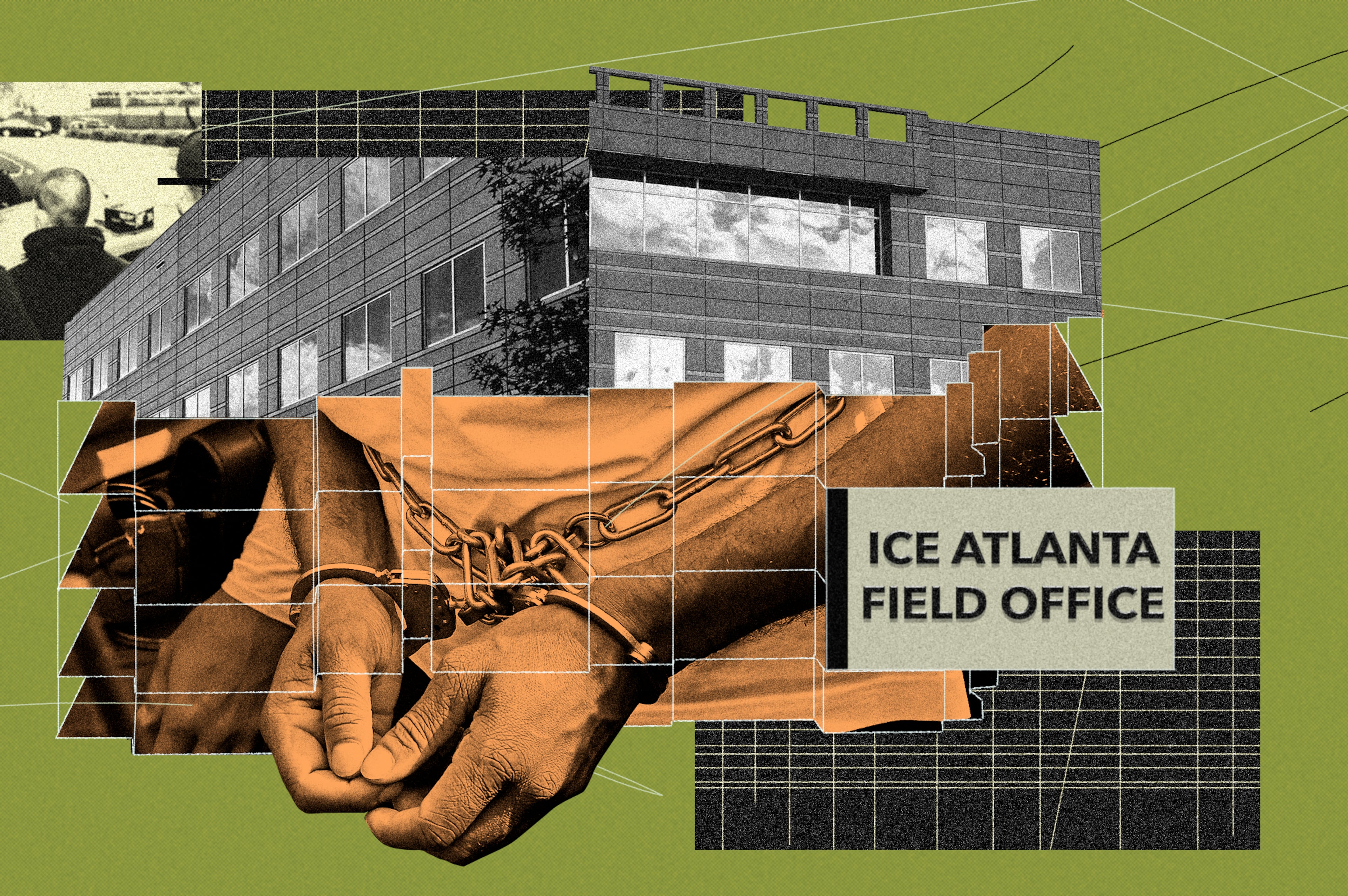After massive Hyundai Metaplant raid, immigrants in Georgia live in fear
While the news cycle has moved on to the next immigration story, the phones at Migrant Equity SouthEast haven’t stopped ringing.
Days after the raid, a woman called about her husband, the family’s sole provider, who had been taken. She had an 8-year-old daughter, a 6-month-old baby, and no idea where he’d been taken. “I don’t have a single friend here,” she told us, her voice breaking.
A month after federal agents stormed the Hyundai manufacturing plant in Ellabell, children are asking when they’ll see their parents again. Frantic families are still trying to find out where their loved ones are being detained. Many households don’t know how they’ll pay rent now that the main breadwinner is gone.
Many of the non-Koreans remain in legal limbo, with no clarity from Immigration and Customs Enforcement about charges or timelines. Some had legal status and permission to work like Deferred Action for Childhood Arrivals, pending asylum claims or work authorization.
For five years, Migrant Equity SouthEast, a Latinx and immigrant-led nonprofit, has served as a lifeline for South Georgia’s migrant and refugee communities. This community is our home. But the Sept. 4 raid has overwhelmed our small team. Each day brings desperate calls from families torn apart or workers trapped in a system that offers no answers.
The raid’s impact extends far beyond those detained. Parents now keep their children home from school, fearing ICE will target them next. Families avoid seeking medical care. Workers are less likely to report wage theft or unsafe conditions.

ICE raid sheds light on the treatment of workers
Some news reporting suggests that worksite safety violations may have drawn ICE to the Hyundai plant. If true, then workers were punished for their employer’s failures.
The fear is visceral. One father whose wife was detained is now terrified to leave his house or take his sons to school, convinced ICE will return for them. The entire family has pending asylum cases. One detained wife’s husband left work early that day. Now he cares for their children alone, unable to reach her, fighting a system that offers no answers. Mothers throughout the community have made the same calculation, keeping their children home rather than risk losing them.
Workers described being surrounded by helicopters, drones and military-style vehicles. Heavily armed ICE agents confiscated phones and pressured individuals to sign papers without legal representation. Workers were physically beaten as agents used tear gas to lock down the plant.
Workers with valid work permits were told their documents would not be valid before being detained. In one case, agents grabbed the hand of a Mexican worker who could neither read nor write and forced him to sign documents he couldn’t comprehend.
This wasn’t workplace enforcement; these were militarized operations carried out against civilians trying to provide for their families.
Hyundai cannot claim ignorance about the treatment of workers within its walls. This is the same company where at least three workers, Sunbok You, Victor Javier Cajija Gamboa and Allen Kowalski, have been killed in preventable accidents since 2023.
They continue to deny responsibility for people who report to work at their facilities, instead scapegoating staffing agencies and subcontractors. This reflects a broader pattern that enables corporations to profit from labor while avoiding accountability for the inhumane conditions faced by workers who sustain their operations — then abandoning them when federal agents snatch them up at work.
Families should not be torn apart or subjected to militarized workplace raids
Although more than 300 South Korean nationals were eventually returned home after diplomatic intervention, more than 150 non-Korean workers remain in legal limbo. Even though they were able to return home, the South Koreans were also subjected to the same terrible ICE prison conditions some immigrants endure for years.
As media attention fades and political focus shifts elsewhere, our community is left to heal from trauma that will have lasting effects for years. We’re not asking for sympathy, we’re demanding accountability. Corporations like Hyundai must be held responsible for the safety and dignity of all workers within their facilities, regardless of immigration status or employment classification.
The 475 people arrested Sept. 4 are our neighbors, our coworkers and our community members. No one should be subjected to militarized raids in their workplace. No family should live in fear of being torn apart.
While politicians move on to the next controversy, real families are still suffering. Supportaffected families and demand that our elected officials ensure this never happens again.
We’re still here, still answering the phones, still fighting for our neighbors’ dignity. Because when any part of our community lives in fear, none of us are truly safe.
Jenny Miron works as the labor rights organizer with Migrant Equity Southeast (MESE). Miron’s work takes her throughout Southeast Georgia where she builds relationships with workers so they can organize for better and dignified working conditions.


